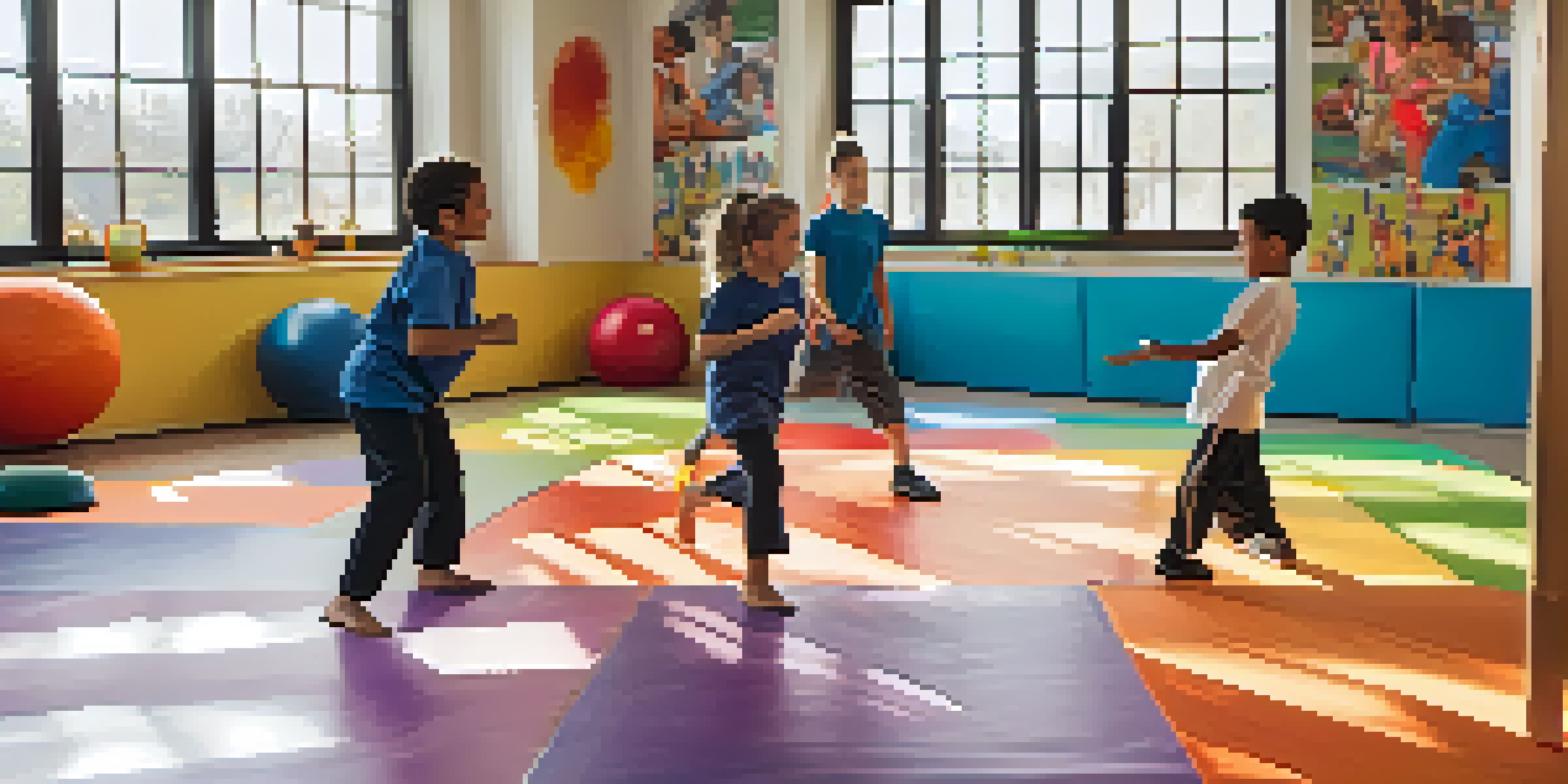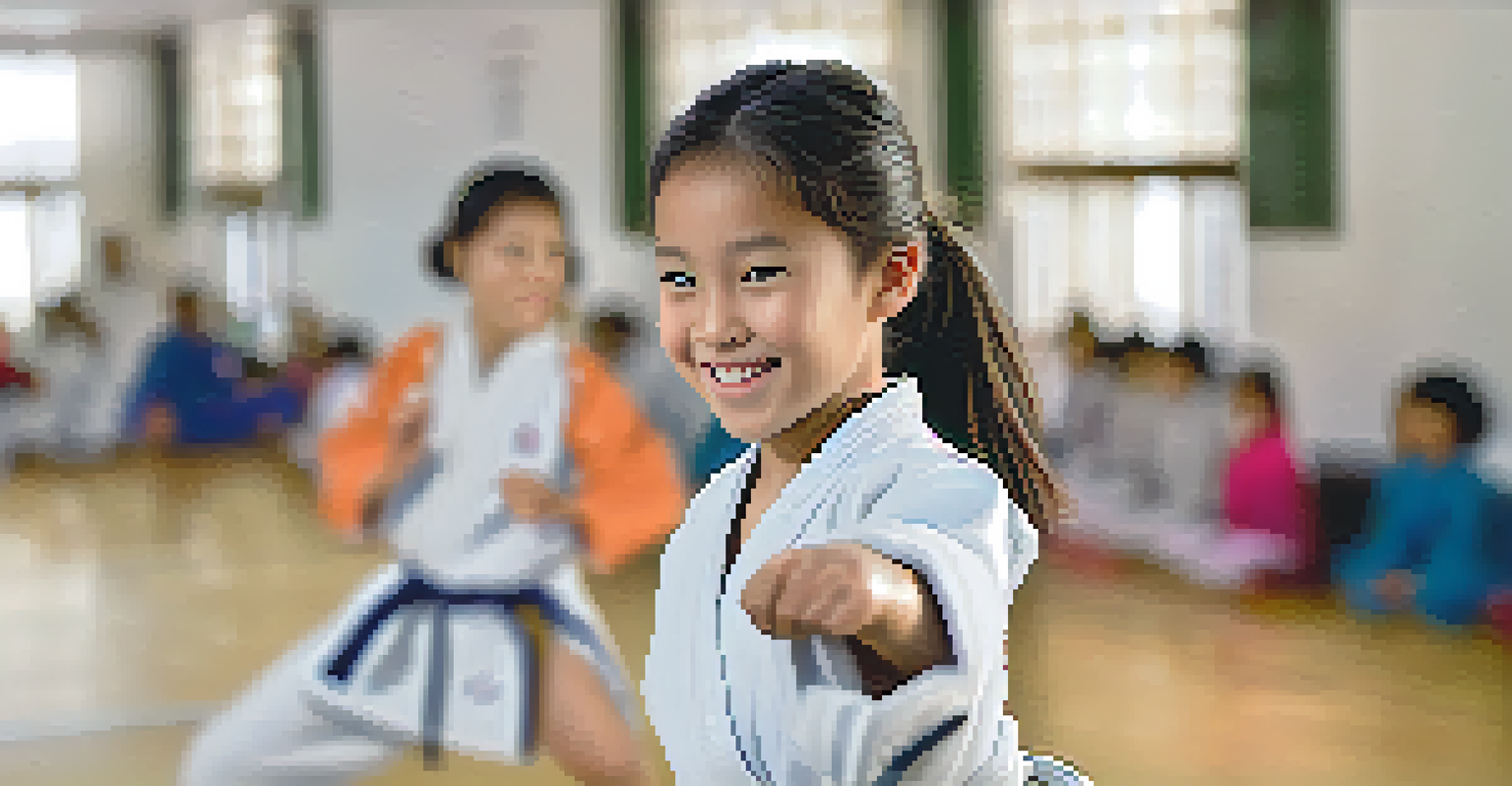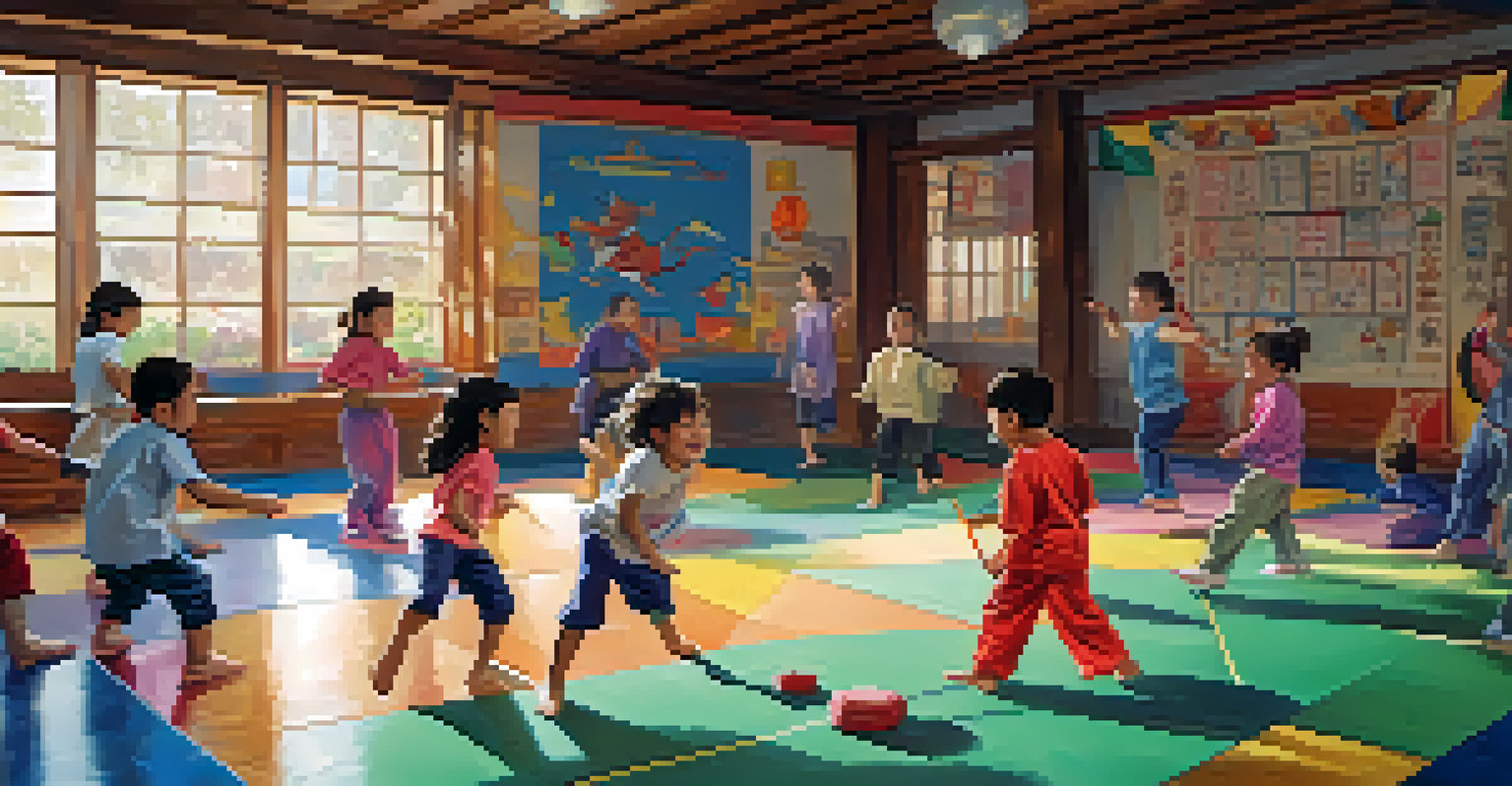Understanding the Psychology of Kids and Self Defense Learning

The Importance of Self-Defense for Kids
Self-defense is not just about physical skills; it also builds confidence in children. When kids learn self-defense, they gain a sense of empowerment that extends beyond the dojo or training mat. This newfound confidence can help them navigate social interactions and stand up to bullying.
Self-defense is not just a set of skills; it is a tool for building confidence and resilience in children.
In today’s world, children face various challenges, and being equipped with self-defense techniques can provide reassurance. It’s not merely about fighting back; it’s about knowing they have the skills to protect themselves if necessary. This understanding can significantly impact their mental well-being.
Moreover, learning self-defense can teach kids valuable life lessons, such as discipline, respect, and perseverance. These qualities are essential as they grow, fostering resilience that aids them in other areas of life, from academics to relationships.
Understanding Children's Fear and Anxiety
Children experience fear and anxiety differently than adults, often struggling to articulate their feelings. This emotional landscape can significantly influence their willingness to engage in self-defense training. Recognizing these emotions is crucial for instructors and parents alike, as it allows for tailored support during the learning process.

For example, a child might feel anxious about facing a partner in practice or fear getting hurt. By addressing these feelings openly, adults can help children feel safe and supported, allowing them to focus on learning effectively. This supportive environment is vital for fostering resilience and encouraging growth.
Self-Defense Boosts Kids' Confidence
Learning self-defense empowers children, enhancing their confidence and resilience in various life situations.
Moreover, understanding that fear is a natural response can help kids reframe their thoughts. Instead of seeing fear as a barrier, they can learn to view it as a challenge to overcome, which is a valuable skill not just in self-defense, but throughout life.
The Role of Play in Learning Self-Defense
Play is an essential element in how kids learn, making self-defense training more engaging and effective. Incorporating playful elements into lessons can help children grasp concepts without feeling overwhelmed. For instance, using games to teach techniques can make the learning process fun, reducing anxiety.
The greatest weapon against stress is our ability to choose one thought over another.
When kids are having fun, they are more likely to absorb information and develop skills organically. This approach lets them practice movements in a low-pressure setting, which can build their confidence over time. Creating a playful atmosphere can transform the experience from one of fear to one of excitement.
Additionally, play encourages creativity, allowing children to explore different ways to protect themselves. This freedom not only enhances their problem-solving skills but also promotes adaptability, which is crucial in real-life situations where self-defense might be necessary.
Building Trust Between Instructors and Kids
Establishing trust between instructors and students is vital for effective self-defense training. Children are more likely to engage and learn when they feel safe and respected. Instructors can foster this trust by being approachable, listening to their concerns, and offering positive reinforcement.
For example, taking the time to understand a child's individual fears or challenges can create a supportive atmosphere. When kids know their instructors care about their well-being, they are more inclined to participate actively and embrace the learning process. This connection can significantly impact their overall experience.
Understanding Kids' Emotions is Key
Recognizing and addressing children's fears and anxieties is essential for effective self-defense training.
Moreover, trust can lead to better communication, allowing children to ask questions and express themselves freely. This open dialogue not only enhances their learning but also helps them develop critical thinking skills, as they learn to assess situations and make informed decisions.
Encouraging Positive Self-Image in Kids
Self-defense training can significantly contribute to a child's self-image and self-worth. As children learn new skills and see their progress, they begin to view themselves more positively. This shift can be particularly impactful for those who may struggle with self-esteem issues.
For instance, mastering a difficult technique can reinforce a child's belief in their abilities. Celebrating these milestones, no matter how small, helps children recognize their potential and fosters a growth mindset. This newfound confidence can translate into other areas of their lives, encouraging them to take on new challenges.
Additionally, instructors can emphasize the importance of self-defense as a means of self-respect and respect for others. This perspective can help children understand that true strength lies not only in physical abilities but also in kindness and empathy.
The Impact of Group Dynamics on Learning
The social environment plays a crucial role in how children learn self-defense. Group dynamics can influence motivation, engagement, and overall enjoyment of the training process. When kids train together, they often encourage each other, creating a sense of camaraderie that enhances their experience.
Working in pairs or teams can also help children develop social skills, such as communication and teamwork. For example, practicing techniques with a partner allows them to build trust and learn to rely on one another, which mirrors real-life situations where collaboration is key.
Group Dynamics Enhance Learning
Training in groups fosters camaraderie and helps children develop social skills while learning self-defense.
Moreover, a supportive group can help children feel less isolated in their fears or challenges. Knowing that others share similar feelings can foster an environment where kids feel comfortable expressing themselves, ultimately leading to a more enriching learning experience.
Setting Realistic Goals for Self-Defense Learning
Setting realistic goals is essential for maintaining motivation in self-defense training. Kids can become easily discouraged if they feel overwhelmed by unrealistic expectations. By breaking down skills into manageable steps, instructors can help children progress at their own pace, which builds confidence along the way.
For instance, rather than expecting a child to master a complex technique immediately, instructors can focus on smaller, achievable goals. Celebrating these successes, no matter how minor, reinforces a child's sense of accomplishment and keeps them motivated to continue learning.

Additionally, involving children in the goal-setting process can empower them and encourage ownership of their learning. When kids have a say in what they want to achieve, they are more likely to stay engaged and committed to their self-defense journey.